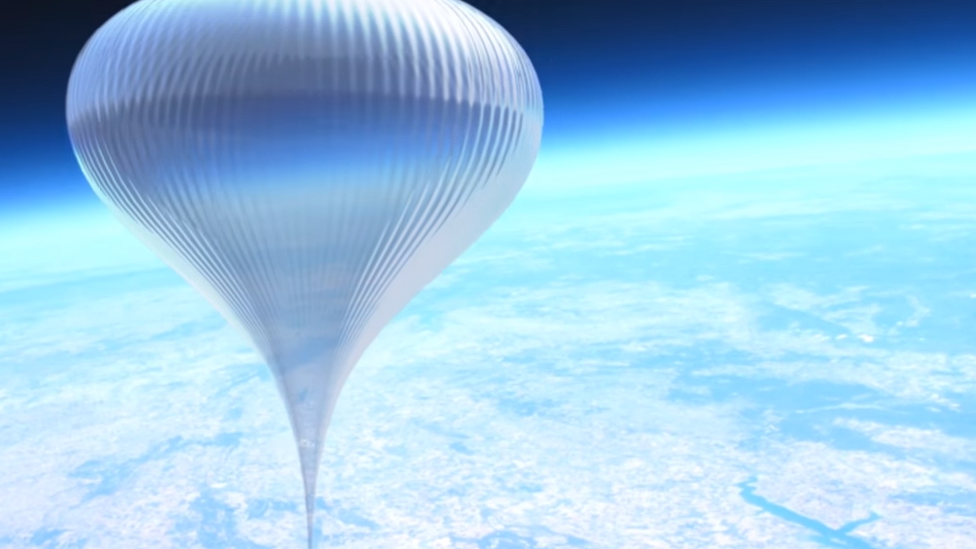Space: Astronaut Tim Peake backs science education scheme
- Published
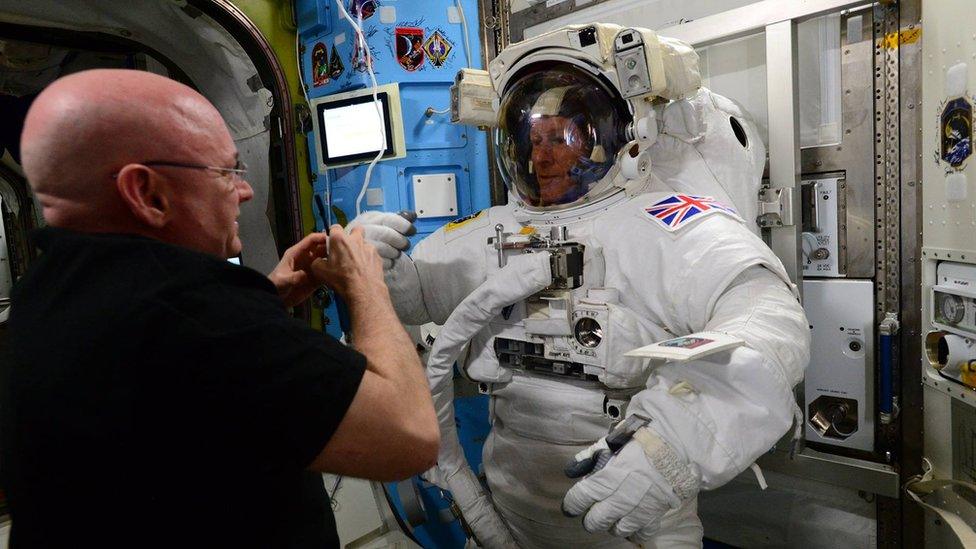
Tim Peake was the first British European Space Agency astronaut and now works to promote space education
"We looked through the planets and how the international space station is so involved with our development in the future," said 12-year-old Ethan, fresh out of a pop-up planetarium show at the UK Space Agency's conference in Newport.
"Maybe in my lifetime I'll be involved in getting to space... I'd like to be heavily involved," said the Mountain Ash Comprehensive pupil, who already enjoys science.
This must be music to the ears of his teachers, the agency and astronaut Tim Peake, who is in Newport promoting potential careers in the sector.
The UK Space Agency has announced a scheme it hopes will reach a million children UK-wide a year.
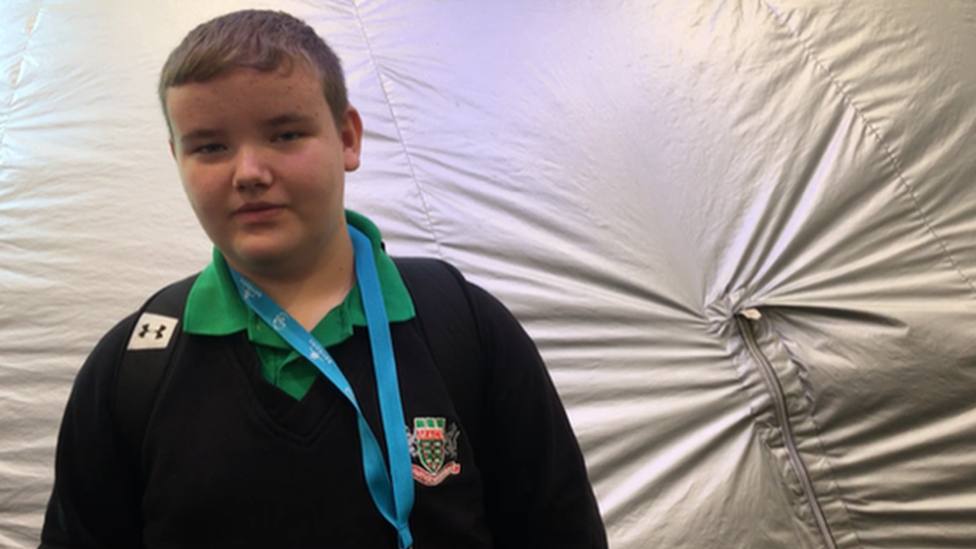
12-year-old Ethan standing outside the pop-up planetarium where youngsters were taken through a space flight
"Space is a fascinating subject that has an incredible capacity to inspire," said Major Peake. "During my mission to the international space station, I was part of a team of thousands of people working behind the scenes to make it possible."
The new project will spend £125,000 to expand the number of science, technology, engineering and maths (STEM) ambassadors, and is expecting in-kind support from industry worth more than £3M.
The sector is working on areas including climate change, communications, defence and delivering international aid.
The agency said the sector was booming, potentially generating billions of pounds and creating 42,000 jobs, which means more young scientists are needed.
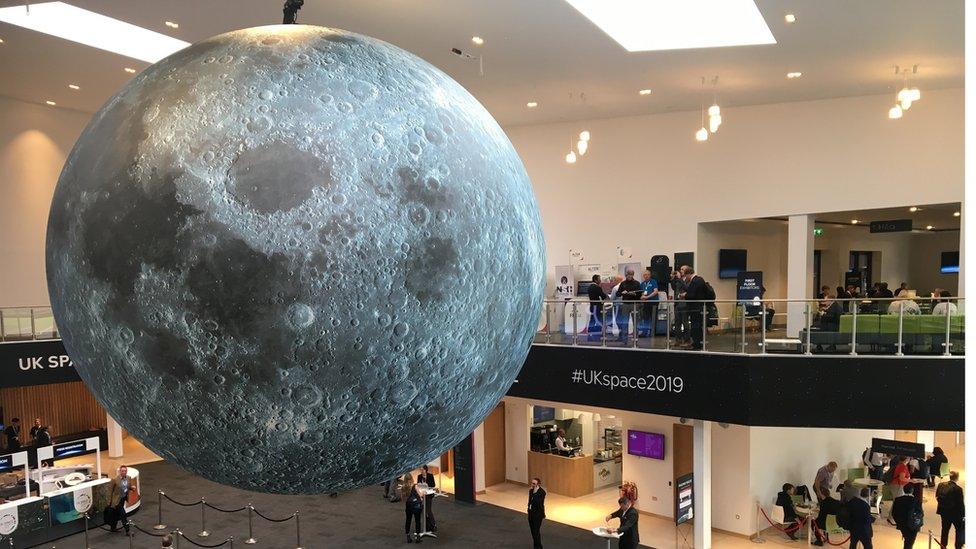
A number of south Wales schools brought 450 children to the UK Space Agency conference in Newport
The ambassador scheme will particularly target underrepresented groups such as girls, ethnic minorities and disadvantaged communities.
Mountain Ash Comprehensive in Rhondda Cynon Taf is one of the south Wales schools that has brought 450 pupils here this week as part of a Welsh Government programme to raise interest in STEM subjects.
They also heard from Major Peake about his space experience, and the future of the sector, which includes plans for an entirely self-sustaining trip to Mars.
The children were given demonstrations which included a space mission to the International Space Station in a pop-up planetarium, maintaining pressure in a space suit using a life-size dummy astronaut, and propelling mini-rockets using gases emitted by dry ice.
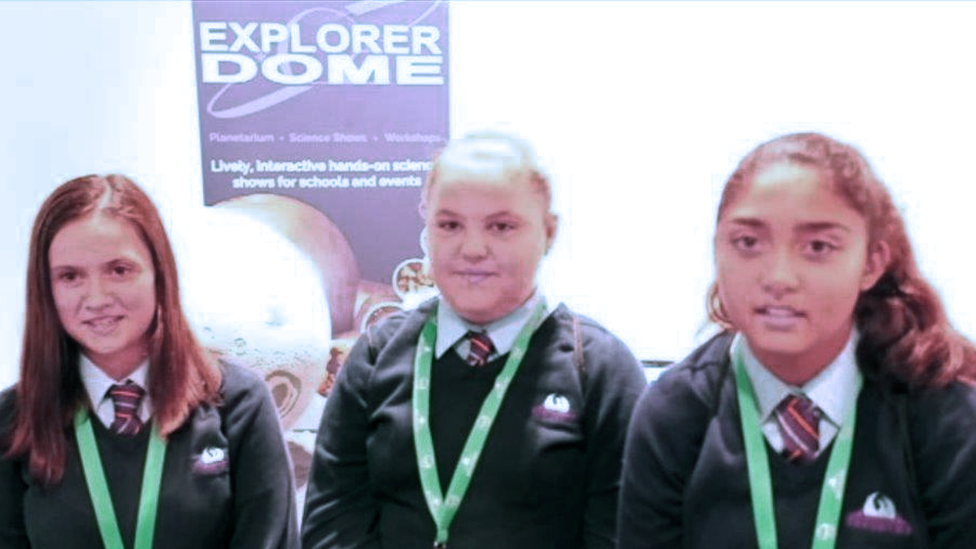
Lexi, Neve and Malikah from Treorchy Comprehensive joined other children at a question and answer with astronaut Tim Peake
From Treorchy Comprehensive, 12-year-olds Lexi and Neve were already interested in science. Malikah was not "too excited about coming, it was just a trip. My parents wanted me to come, but now I'm really glad, it's been a great experience".
All three spoke enthusiastically about the exhibits and experiments.
This reaction might seem like mission accomplished for this event, but figures show the proportion of A-levels taken by girls in STEM subjects has stayed fairly static over the last 10 years.
The number of A-level STEM subjects taken as a proportion of all exams has increased slightly during that time, but the industry wants that to increase dramatically to fill the skills gap.
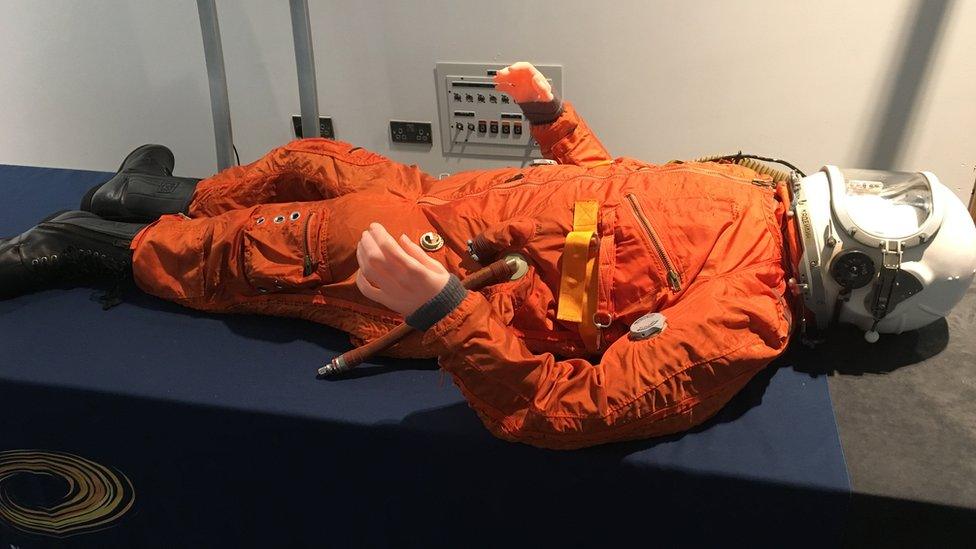
This dummy dressed in a spacesuit demonstrated to the children how maintaining pressure keeps astronauts alive
Graham Peters, chairman of the trade association UKspace, said the new scheme was designed to inspire young people to make subject choices that will lead them to work in the sector.
"The massive interest earlier this year celebrating the 50th anniversary of the Moon landings brought home not only the huge public interest in space exploration but also how space technology plays a key role in our daily lives."
- Published16 January 2016
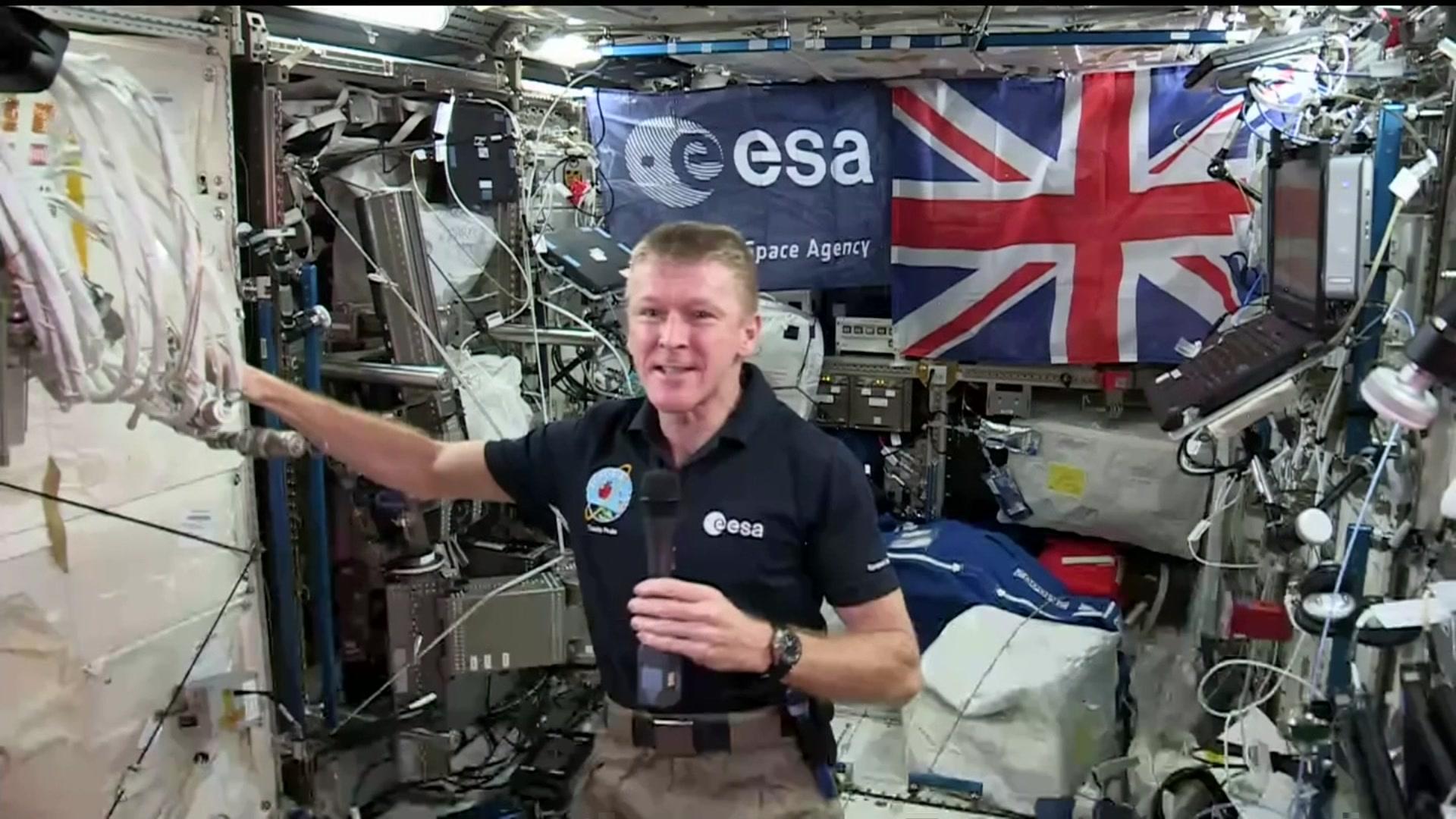
- Published24 September 2019
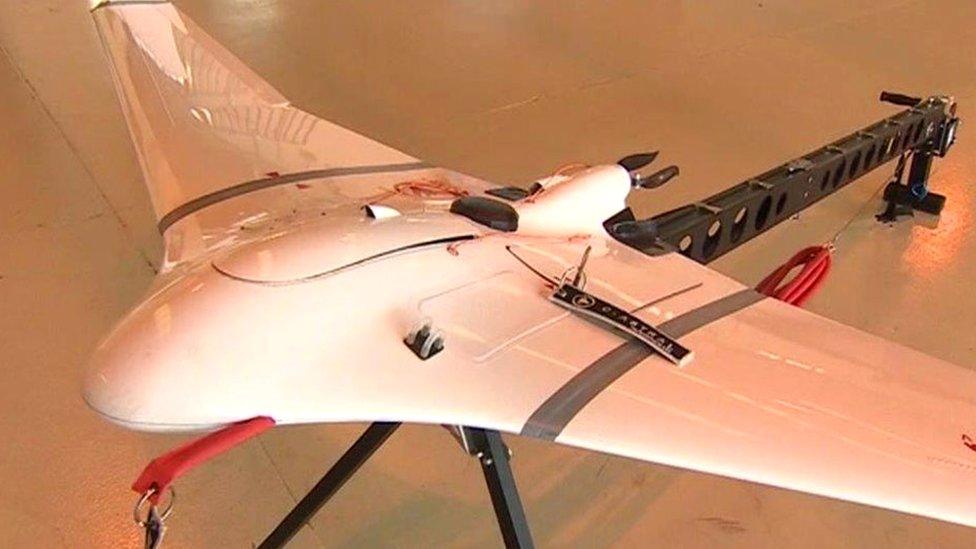
- Published25 September 2019
